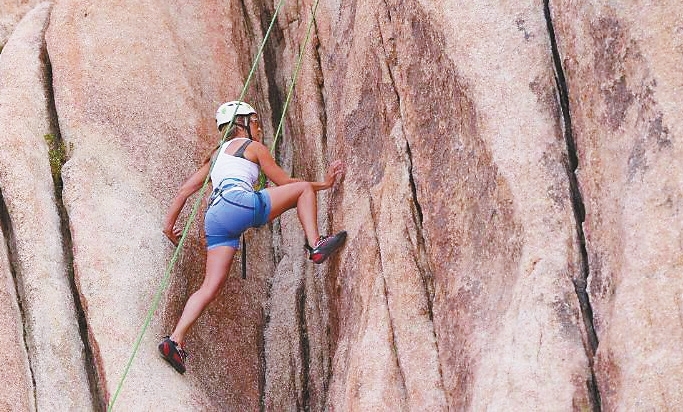
ROCK climbing may seem like a niche sport, possibly one fraught with danger. After all, it involves scaling the side of a cliff or simulated rock wall. But experts say it offers participants a wide variety of physical and mental health benefits that are not always found in other sports. The new Olympic sport features three disciplines: bouldering, which is performed on lower walls without ropes; speed climbing, where the fastest person to the top wins; and lead climbing, where the goal is to climb as high as possible within a time limit. While rock climbing attracts thrill-seekers, others appreciate it as an excellent workout that also calms and sharpens the mind. Here are reasons you may wish to give rock climbing a try. Increases cardiorespiratory fitness Fast-moving sports such as running, soccer and cycling come to mind as workouts that elevate your heart rate. But climbing gets your heart pumping, too, as it involves a lot of pulling, pushing and lifting. And the more challenging the climb compared with your ability, the more of a workout. Builds muscle strength It’s not surprising that hauling your body up a cliff wall builds muscle in your arms, but climbing is a full-body exercise. In addition to giving your biceps, triceps and deltoids a workout, it also calls on your abdominals, obliques, glutes, thighs, calves and more. Improves flexibility and balance Climbing requires you to be able to stretch your arms and legs high and wide, plus contort your body into unusual positions. And, of course, you need to balance on tiny footholds. The more you climb, the better your flexibility, balance and coordination. Enhances memory and problem-solving Much of rock climbing’s skill lies in determining and memorizing your climbing route beforehand. You also need to be able to problem-solve on the fly, changing your route or sequences. Builds community Indoor climbing offers physical, social and psychological benefits, including camaraderie, according to a U.S. Department of Veterans Affairs study on adaptive rock climbing for those with disabilities. And most climbers say the best thing about their sport is that it’s a tight-knit community. Combats depression Like many other forms of exercise, rock climbing can help battle the blues. Researchers in Germany found rock climbing to be successful psychotherapy for adults with depression, thanks to its physical, social and mental benefits. If you’re climbing outside, you may get an extra boost as research also has shown spending time in nature is a natural antidepressant. (SD-Agencies) | 
